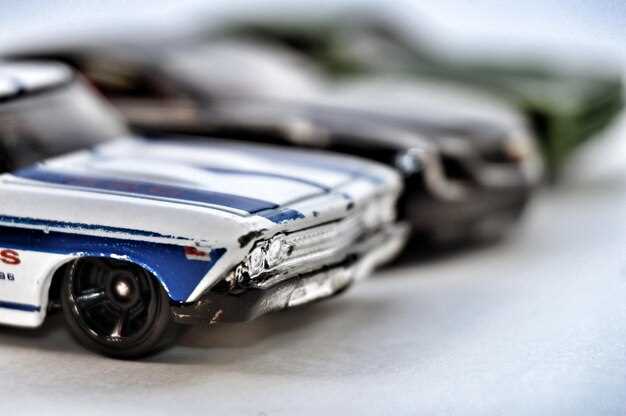

When considering the purchase of a Mustang, enthusiasts often find themselves at a crossroads: should they opt for a brand-new model or take the plunge on a pre-owned one? Both options have their merits, and understanding the nuances between them can significantly impact your driving experience and financial considerations.
A new Mustang represents the latest advancements in automotive technology, performance, and comfort. Buyers can customize their vehicle to suit their preferences and enjoy the peace of mind that comes with a manufacturer’s warranty. However, this newfound luxury comes with a higher price tag that may deter some potential owners.
On the other hand, a used Mustang can provide a thrilling driving experience at a fraction of the cost. Many seasoned drivers find joy in exploring the character and history of earlier models, while also benefiting from depreciation that makes these vehicles more financially accessible. Ultimately, the decision hinges on personal priorities: whether one values the latest features of a new vehicle or the charm and savings a used Mustang can offer.
New or Used Mustang: Which is the Better Choice?
When considering the purchase of a Mustang, potential buyers often find themselves deliberating between opting for a new model or a used one. Each option has its own set of advantages and disadvantages that cater to different preferences and budgets.
New Mustangs offer the latest features, technology, and warranties. Purchasing a new vehicle ensures that you are getting the most up-to-date safety and performance enhancements, as well as the peace of mind that comes with a manufacturer’s warranty. Additionally, new models typically come with customizable options, allowing buyers to tailor their Mustang to suit personal tastes. However, this option often comes with a higher price tag and a more significant depreciation value in the first few years.
On the other hand, opting for a used Mustang can provide significant cost savings. Used models often have lower overall prices, and buyers may be able to afford a higher trim level or performance package than they could with a new vehicle. Furthermore, many used Mustangs are still in great condition and can offer an engaging driving experience at a fraction of the new car price. However, buyers should be cautious and thoroughly inspect the vehicle’s history and condition to avoid potential mechanical issues.
Ultimately, the decision comes down to individual needs and circumstances. If you prioritize modern features and warranty coverage, a new Mustang may be the better choice. Conversely, if budget constraints are a significant factor and you are willing to assess the condition of a used model, you might find that a used Mustang aligns more closely with your goals. Assessing these factors will help in making an informed decision that best fits your lifestyle and driving aspirations.
Evaluating the Cost Differences Between New and Used Mustangs

When considering the purchase of a Mustang, understanding the cost implications of new versus used vehicles is crucial for making an informed decision. New Mustangs often come with a higher price tag due to the latest technology, warranty coverage, and the appeal of being the first owner. However, this initial investment is complemented by better financing options and potential fuel efficiency improvements relative to older models.
On the other hand, used Mustangs present a more budget-friendly alternative. They typically depreciate significantly in the first few years, making it possible to acquire a well-maintained vehicle at a fraction of the original cost. This depreciation factor allows buyers to enjoy the performance and style of a Mustang without the financial burden associated with buying new. Additionally, used models may provide access to performance versions or rarer trims that are no longer in production.
Maintenance costs should also be evaluated. New cars usually come with warranties that cover repairs for several years, while used cars may eventually incur higher maintenance expenses as they age. Buyers should factor in potential repairs based on the vehicle’s history and the availability of parts.
Ultimately, the decision between new and used Mustangs will depend on individual priorities, such as budget, desired features, and long-term ownership plans. A comprehensive evaluation of the total cost of ownership for both options will guide buyers in making the best choice for their needs.
Assessing the Reliability and Maintenance of Different Mustang Models

When considering the purchase of a Mustang, understanding the reliability and maintenance needs of various models is crucial for making an informed decision. The Mustang has evolved significantly over the years, which directly impacts its reliability and care requirements.
Here are some key factors to evaluate:
-
Model Year:
- Older models often require more frequent maintenance due to wear and tear.
- Newer Mustangs benefit from advancements in technology and engineering, leading to improved reliability.
-
Engine Type:
- V8 engines may provide more power but could come with higher fuel and maintenance costs.
- The EcoBoost engines are generally more fuel-efficient and may require less frequent servicing.
-
Common Issues:
- Research specific generations for known reliability issues, such as transmission or electrical problems.
- Look for owner reviews and reliability ratings from trustworthy sources.
-
Maintenance Costs:
- New cars typically come with warranties that cover maintenance for a certain period.
- Used models may incur unforeseen costs, especially if they lack a complete service history.
In conclusion, assessing the reliability and maintenance of different Mustang models is essential for making the right purchase decision. Comparing model years, engine types, common issues, and maintenance costs will assist potential buyers in choosing the best option for their needs and budget.
Understanding the Resale Value and Long-Term Investment of Mustangs
When considering the purchase of a Mustang, it’s essential to evaluate not only the initial cost but also the vehicle’s resale value. Mustangs, with their iconic status and strong following, often maintain a competitive resale value, especially in well-maintained condition or limited editions. Analyzing market trends can provide insight into how specific models appreciate over time.
New Mustangs typically depreciate faster in their initial years, common to most new vehicles. However, certain models, particularly special editions or high-performance variants, may experience less depreciation and can even appreciate in value as they become sought after by collectors. Conversely, purchasing a used Mustang can offer a better initial value, allowing buyers to bypass some of the steepest depreciation that new cars face.
Long-term investment potential is also a factor. Classic Mustangs from the late 1960s or early 1970s have seen significant appreciation, driven by nostalgia and cultural reverence. Enthusiast communities continue to drive demand for these vintage models, making them wise investments for those willing to hold onto them. Even newer models can offer good returns if they are limited editions and well-preserved.
Ultimately, the choice between a new or used Mustang should consider personal preferences for driving experience versus investment potential. Buyers seeking immediate satisfaction may gravitate toward new models, while those looking for long-term value may find that used Mustangs carry the promise of an appreciating asset within the automotive market.






